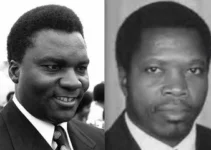As the sun rises on March 12, South Africa awakens to a new day and echoes its ever-evolving history. But what specific tales does this particular date whisper? We embark on a journey to uncover the threads woven into the fabric of March 12 in South Africa.

2020: Isidingo airs the last episode
Isidingo, a popular South African soap opera, has been cancelled due to low viewership numbers after airing for 21 years. The show tackled societal issues and was the first to incorporate current affairs in South Africa in its episodes. It aired the first gay wedding and interracial romantic relationship on TV. Despite its efforts, the show struggled to sustain its viewership possibly due to changing cast members and TV slots. It won several awards including the Golden Horns Best TV Soap in 2006 and 2009.
2005: Pioneer tomato farmer Bertie van Zyl is buried in Mooketsi
Bertie van Zyl, founder of ZZ2, one of the world’s largest tomato growing operations, passed away at the age of 72 in a Pretoria hospital. His funeral was attended by government officials, including the minister of agriculture, and thousands of his farm workers. Van Zyl was recognized for his contributions to the development of emerging farmers.
1994: Constant Viljoen announces his resignation from AVF
General Constant Viljoen, the former leader of Afrikaner Volksunie and Freedom Front, resigned from Afrikaner National Front-Afrikaner Volksfront due to the behavior of ultra-right Afrikaanse Weerstandsbeweging (AWB) in Bophuthatswana. He led Freedom Front party to participate in the first democratic elections in South Africa after breaking ranks with Freedom Alliance.
1990: Nelson Mandela continues his international tour
Nelson Mandela, the ANC deputy president, went to Sweden as part of his international tour. He met Oliver Tambo, his former law firm partner, who was recovering from a stroke, for the first time in 28 years.
1980: Black, Coloured and Indian churches issues a statement on Immorality Act and the Mixed Marriages Act
Black, Coloured and Indian churches issued a statement saying they had no objection if authorities reconsidered the Immorality Act and the Mixed Marriages Act. These Acts criminalized interracial marriage and sex. They were among the first major laws of the apartheid government, with penalties including prison and lashes for offenders.
1975: Stanley Mabizela writes a letter to the ANC after a visit by Thabo Mbeki and Max Sisulu
Stanley Mabizela, the African National Congress (ANC) Chief representative in Swaziland, wrote a letter on 12 March 1975 to thank the ANC for a visit by Thabo Mbeki and Max Sisulu. Mabizela expressed his gratitude for the visit and how it felt like a reunion. In 1982, Mabizela was forced to leave Swaziland due to a security agreement between King Sobhuza and the South African government.
1968: P.W. Botha reports to the Senate on South Africa’s defence policy and the Arms Industry’s main aims
In March 1968, the Minister of Defence, P.W. Botha, reported to the Senate on the Arms Industry and the main aims of South Africa’s defence policy. The Apartheid State, fearing a potential uprising by Black South Africans supported by the Soviet Union, and the reluctance of Western Governments to supply arms, decided to develop its own means of producing and servicing its armed forces. This included manufacturing capabilities regarding nuclear arms, ammunition, aeronautics, and armour. South Africa was successful in accomplishing most of these goals, but the greatest threat to Apartheid was social, comprising people and organizations within and outside South Africa, who exerted pressure on the state to abandon Apartheid.
1868: Basutoland (now Lesotho) becomes British territory
Moshoeshoe founded Lesotho, a country which brought together scattered Sotho peoples who had been driven apart by Zulu and Ndebele raids. The land was later taken over by Boers from the Orange Free State, but Moshoeshoe appealed to the British for protection, and in 1868 Lesotho became a British protectorate. Basutoland was then ruled by London until its independence in 1966.
1488: Bartholomew Dias erects the first stone cross on the South African coast
Bartholomew Dias, a Portuguese navigator, set foot on South African soil in 1487. He sailed around the southernmost tip of Africa and erected three stone crosses or padrões on the southern African coast. The first padrão, erected at Kwaaihoek, near the mouth of the Bushman’s River, is seen as South Africa’s oldest monument. Dias called the Cape Peninsula Cabo Tormentoso, or Cape of Storms, which was later renamed Cabo de Boa Esperanza, or Cape of Good Hope. Dias’s ship disappeared during a cyclone in 1500.



